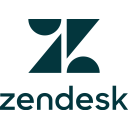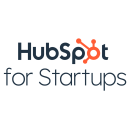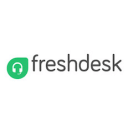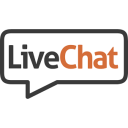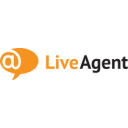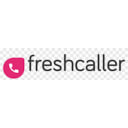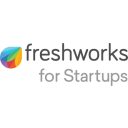Zendesk vs LiveAgent: Which support solution fits your needs?
- 01Zendesk vs LiveAgent: overview
- 02What's the difference between Zendesk and LiveAgent?
- 03Zendesk pros and cons
- 04LiveAgent pros and cons
- 05Zendesk compared to LiveAgent
- 06LiveAgent compared to Zendesk
- 07Features comparison
- 08Zendesk vs LiveAgent: Which is the best for your business?
- 09Promotions on AI Customer Support software
- 10Alternatives to Zendesk & LiveAgent
Access up to $50,000 savings on Zendesk & $120 on LiveAgent
LiveAgent
$120 credits on any plan
Access up to $50,000 savings on Zendesk & $120 on LiveAgent
Effective customer support and help desk management are essential to the success of any business, whether it’s a new startup, an e-commerce platform, or a large enterprise. You need a powerful tool to give you oversight of customer interactions, keep support tickets organized, and empower your support team to collaborate efficiently.
That’s where help desk software comes in. In this article, we look at two of the leading help desk tools on the market—Zendesk and LiveAgent. We will walk you through their main features and key differences so you can decide which one best suits your budget and business needs.
Zendesk vs LiveAgent: overview
Zendesk and LiveAgent are prominent players in the customer support software category, each offering a diverse array of features. Choosing between these two platforms can pose a challenge, given their extensive capabilities and functionalities.
To facilitate your decision-making process, we've crafted a comprehensive comparison table that highlights the key attributes of Zendesk and LiveAgent. Utilizing a star-based rating system alongside insightful commentary, this table aims to empower you with the necessary insights to make an informed choice for your customer support needs.
Whether you prioritize ticket management, multi-channel support, automation, or customer satisfaction analytics, our comparison will help you navigate the Zendesk vs LiveAgent landscape and find the solution that aligns best with your specific business needs.
What's the difference between Zendesk and LiveAgent?
When comparing help desk software, Zendesk and LiveAgent are both popular choices that have been around for years, offering robust features for managing customer support interactions. Despite sharing many central functionalities, there are some notable differences between the two tools.
The main difference lies in their automation capabilities. Zendesk excels with its advanced automation features, allowing users to create sophisticated workflows using triggers, automations, and macros. This includes automated ticket routing, response suggestions, and task management, which can significantly streamline support operations. LiveAgent, while offering automation features, focuses more on providing customizable ticketing workflows and SLA rules. It supports basic automation, such as auto-responders and canned responses, but its automation capabilities are not as extensive as Zendesk's.
Another significant difference is in their multi-channel support. Zendesk is renowned for its comprehensive multi-channel support, integrating seamlessly with email, chat, phone, social media, and more. This makes it an ideal choice for businesses needing a unified platform to manage all customer interactions. LiveAgent also supports multiple channels, including email, chat, and social media, but it stands out with its built-in call center capabilities and gamification features designed to motivate support agents.
In terms of pricing, Zendesk offers a range of plans starting at $19/user/month, but its more advanced features are locked behind higher-tier plans, which can be costly for small businesses. LiveAgent, on the other hand, offers competitive pricing with plans starting at $15/agent/month, including features like unlimited chat buttons, email ticketing, and a call center. This can make LiveAgent a more affordable choice for businesses seeking a cost-effective yet powerful support solution.
If you prioritize advanced automation and a unified multi-channel experience, Zendesk might be the better fit. However, if you seek a cost-effective solution with strong call center capabilities and gamification, LiveAgent could be the ideal choice.
Zendesk pros and cons
What are the advantages of Zendesk?
- Comprehensive multi-channel support: Zendesk supports multiple communication channels, including email, chat, phone, social media, and SMS, allowing businesses to manage all customer interactions from a single platform.
- Advanced automation and AI: The platform offers robust automation features, including triggers, automations, and macros, which can streamline workflows and improve efficiency. AI-powered tools such as Answer Bot can provide instant responses to common queries.
- Customizable and scalable: Zendesk is highly customizable, allowing businesses to tailor the platform to their specific needs with custom fields, apps, and integrations. It's also scalable, making it suitable for businesses of all sizes, from small startups to large enterprises.
- Extensive reporting and analytics: Zendesk provides comprehensive reporting and analytics capabilities, offering detailed insights into customer interactions, agent performance, and overall support metrics. This helps businesses make data-driven decisions to improve their support processes.
- Integration ecosystem: Zendesk boasts a vast marketplace with numerous integrations, enabling seamless connectivity with other business tools like CRM systems, project management software, and more. This enhances its functionality and allows for a more cohesive business operation.
What are the disadvantages of Zendesk?
- Costly for advanced features: While Zendesk offers a range of pricing plans, the more advanced features and capabilities are often locked behind higher-tier plans, which can be expensive for small businesses or startups.
- Complex setup and learning curve: Due to its extensive features and customization options, setting up Zendesk can be complex and time-consuming. There is also a steep learning curve for new users, which might require significant training and onboarding.
- Limited customization on lower plans: Some customization options and advanced features are only available on the higher-tier plans, limiting the flexibility for users on the lower-priced plans.
- Performance issues with large data: Some users have reported performance issues when handling large volumes of data or a high number of tickets, which can slow down the system and impact efficiency.
- Customer support: Despite being a customer support platform, some users have reported dissatisfaction with Zendesk's own customer support, citing slow response times and inadequate assistance.
Compare Zendesk to other tools
LiveAgent pros and cons
What are the advantages of LiveAgent?
- Comprehensive ticketing system: LiveAgent offers a robust ticketing system that consolidates all customer interactions from various channels into a single, unified interface. This includes email, chat, social media, and phone support, ensuring no customer query is missed.
- Built-in call center: One of LiveAgent's standout features is its built-in call center functionality, which allows businesses to manage inbound and outbound calls directly from the platform without needing third-party integrations.
- Affordable pricing: LiveAgent offers competitive pricing plans that include a wide range of features at lower costs compared to some competitors. This makes it a cost-effective solution for small to medium-sized businesses.
- Gamification features: The platform includes gamification features designed to motivate and engage support agents. By introducing elements like badges, rewards, and leaderboards, LiveAgent helps boost agent productivity and job satisfaction.
- Customizable and user-friendly: LiveAgent is known for its user-friendly interface and customizable options. Users can easily tailor the system to fit their specific needs and workflows without a steep learning curve.
What are the disadvantages of LiveAgent?
- Limited advanced automation: While LiveAgent does offer some automation capabilities, they are not as advanced or comprehensive as those found in other platforms like Zendesk. This might limit efficiency gains for businesses seeking sophisticated automation solutions.
- Basic reporting and analytics: The reporting and analytics features in LiveAgent are more basic compared to other help desk software. This might not be sufficient for businesses needing in-depth insights and detailed performance metrics.
- Integration limitations: LiveAgent supports various integrations, but its integration ecosystem is not as extensive as some competitors. This could be a drawback for businesses relying heavily on a wide array of third-party tools.
- Mobile app limitations: While LiveAgent offers mobile apps for iOS and Android, they are somewhat limited in functionality compared to the desktop version. This can impact the ability of support agents to manage tasks efficiently while on the go.
- User interface: Some users have reported that the user interface, although user-friendly, can feel outdated and cluttered. This might affect the overall user experience, especially for those accustomed to more modern interfaces.
Compare LiveAgent to other tools
Zendesk compared to LiveAgent
Zendesk and LiveAgent are both prominent help desk software solutions, but they cater to different business needs. Zendesk excels with its advanced automation features, extensive multi-channel support, and comprehensive analytics, making it ideal for larger enterprises seeking sophisticated tools.
In contrast, LiveAgent offers a more affordable and user-friendly option with robust built-in call center capabilities and effective gamification features, appealing to small to medium-sized businesses. While Zendesk provides a more extensive integration ecosystem, LiveAgent's competitive pricing and ease of use make it a strong contender for businesses prioritizing cost-effectiveness and straightforward functionality.
Is Zendesk better than LiveAgent?
Determining whether Zendesk is better than LiveAgent depends largely on your specific business needs and budget. Zendesk stands out for its advanced automation capabilities, which streamline complex support workflows, and its comprehensive analytics, which provide deep insights into customer interactions and team performance. This makes it particularly suitable for large enterprises with intricate support requirements.
However, LiveAgent may be preferable for smaller businesses due to its more affordable pricing and intuitive interface. It offers strong built-in call center functionality and gamification features that enhance agent engagement. Therefore, while Zendesk excels in scalability and feature richness, LiveAgent offers a practical and cost-effective solution for many organizations.
What is Zendesk best used for?
Zendesk is best used for managing customer support and engagement across various communication channels. It excels in providing advanced automation tools that streamline support workflows, making it ideal for handling large volumes of customer inquiries efficiently. Its comprehensive multi-channel support integrates email, chat, social media, and phone interactions into a unified platform, ensuring seamless customer communication.
Additionally, Zendesk's robust analytics and reporting capabilities help businesses gain valuable insights into support performance and customer satisfaction. This makes Zendesk particularly suited for large enterprises and businesses seeking to enhance their customer service operations with sophisticated tools and integrations.
Can Zendesk replace LiveAgent?
Zendesk can replace LiveAgent for businesses seeking advanced automation, extensive multi-channel support, and comprehensive analytics. While LiveAgent offers robust features and affordability, Zendesk excels with its sophisticated tools and scalability, making it suitable for larger enterprises or those needing more complex support workflows.
Zendesk's higher-tier plans provide enhanced customization and integration options, which can fulfill the needs of businesses looking for a more powerful and versatile solution. However, for small to medium-sized businesses focused on cost-effective solutions, LiveAgent remains a strong contender.
Is Zendesk cheaper than LiveAgent?
Zendesk’s pricing is generally more expensive than LiveAgent, especially when considering advanced features and higher-tier plans. While Zendesk offers a range of plans starting at $19 per user per month, its more comprehensive functionalities are locked behind higher-priced tiers, which can add up for larger teams.
LiveAgent, on the other hand, provides more affordable pricing options with plans starting at $15 per agent per month, and it includes a robust set of features even at lower tiers. This cost-effectiveness makes LiveAgent a more attractive option for small to medium-sized businesses looking for budget-friendly yet powerful customer support solutions.
Is there a better AI Customer Support software than Zendesk?
Selecting the optimal help desk software hinges on a careful evaluation of your unique needs and goals.
While Zendesk stands out for its advanced automation, multi-channel support, and comprehensive analytics, other platforms like LiveAgent, Freshdesk, and Help Scout offer specialized approaches. These alternatives to Zendesk provide dedicated features for customer support, such as built-in call centers, gamification for agent motivation, and simplified ticketing systems.
6 months free on Zendesk
Get 6 months free on Zendesk and up to $50,000 savings with Secret.
LiveAgent compared to Zendesk
LiveAgent and Zendesk are both powerful help desk solutions, but they serve different needs. LiveAgent is known for its affordability, built-in call center capabilities, and gamification features, making it ideal for small to medium-sized businesses seeking cost-effective solutions. Zendesk, however, offers advanced automation, comprehensive multi-channel support, and robust analytics, which are better suited for larger enterprises requiring sophisticated tools.
While LiveAgent provides a user-friendly interface and essential integrations, Zendesk excels in delivering a more extensive integration ecosystem and higher scalability.
Is LiveAgent better than Zendesk?
Whether LiveAgent is better than Zendesk depends on your specific requirements and scale. LiveAgent shines in affordability and simplicity, providing essential support features like built-in call center capabilities and gamification to engage agents. This makes it a solid choice for small to medium-sized businesses looking for a cost-effective and intuitive solution.
However, if your organization requires extensive automation, advanced multi-channel support, and in-depth analytics, Zendesk's superior scalability and integration options are more suitable. Zendesk’s sophisticated tools cater to larger enterprises with complex needs, offering a broader range of functionalities and deeper insights.
What is LiveAgent best used for?
LiveAgent is best used for providing comprehensive customer support through its robust ticketing system and built-in call center capabilities. It excels in consolidating customer interactions from various channels, such as email, chat, and social media, into a unified platform.
LiveAgent's user-friendly interface and gamification features make it particularly effective for small to medium-sized businesses seeking to motivate support agents and improve efficiency. Additionally, its affordable pricing and essential automation tools help streamline support processes, making LiveAgent an excellent choice for businesses looking to enhance their customer service operations without a significant financial investment.
Can LiveAgent replace Zendesk?
LiveAgent can replace Zendesk for businesses seeking a cost-effective, user-friendly solution with built-in call center capabilities and essential support features. While LiveAgent offers comprehensive ticketing, multi-channel support, and gamification, it may lack the advanced automation and extensive integration options that Zendesk provides.
For small to medium-sized businesses, LiveAgent is an excellent alternative, providing robust customer support at a lower cost. However, larger enterprises or those requiring sophisticated automation and analytics might find Zendesk more suitable.
Is LiveAgent cheaper than Zendesk?
LiveAgent is generally cheaper than Zendesk, offering more affordable pricing plans that include a wide range of features even at lower tiers. Starting at $15 per agent per month, LiveAgent provides robust ticketing, multi-channel support, and built-in call center capabilities, making it cost-effective for small to medium-sized businesses.
In contrast, Zendesk's plans start at $19 per user per month, with advanced features and extensive functionalities often locked behind higher-priced tiers. This makes LiveAgent’s pricing a more budget-friendly option for businesses looking to manage customer support efficiently without incurring high costs associated with Zendesk's premium plans.
Is there a better Customer Support software than LiveAgent?
Choosing the best help desk software depends on your specific needs and business context.
While LiveAgent is praised for its affordability and built-in call center features, alternatives to LiveAgent like Zendesk, Front, Hiver, LiveChat, and Zoho Desk offer distinct advantages. Front provides a collaborative approach to managing customer communication with its shared inbox and workflow automation. Hiver integrates seamlessly with Gmail, offering ease of use for teams already on Google Workspace. LiveChat is known for its real-time chat capabilities, enhancing customer engagement. Zoho Desk offers customizable features and robust integrations, making it a versatile choice.
$120 credits on any plan on LiveAgent
Get $120 credits on any plan on LiveAgent and up to $120 savings with Secret.
Features comparison
Zendesk Elevates Beyond LiveAgent with Advanced Automation Tools
While LiveAgent offers basic automation capabilities, Zendesk takes it a step further with more sophisticated automation tools, enabling businesses to create predefined rules and workflows. For instance, Zendesk allows you to set up triggers that automatically route tickets to the right agents based on criteria like priority or department. Its automation can send instant, customized responses to common customer inquiries, freeing up agents to handle more complex issues.
Additionally, Zendesk's escalation rules ensure that urgent issues are promptly flagged and addressed, enhancing response times. These advanced automation features streamline support processes, significantly improving overall efficiency and customer satisfaction compared to LiveAgent's more basic offerings.
LiveAgent Enhances Customer Support with Community Features Over Zendesk
Whilst both Zendesk and LiveAgent provide knowledge bases for self-help resources, LiveAgent steps up the game by offering a unique platform for customers to create and participate in community forums. This feature allows users to engage in discussions, share solutions, and exchange best practices with one another, fostering a sense of belonging and collaboration.
For instance, LiveAgent’s community forums enable customers to seek advice, share tips, and contribute to solving common issues collectively. This not only enhances problem-solving but also builds a supportive user network. In contrast, Zendesk focuses more on traditional knowledge base articles and support tickets, lacking this interactive community element.
Zendesk Surpasses LiveAgent in User-Friendly Design
When it comes to simplifying the customer service process, both Zendesk and LiveAgent are designed with usability in mind. However, if we dive deeper, Zendesk takes the lead because of its intuitive design and effortless navigation. Zendesk provides an interactive user interface and a crisp dashboard that allows you to manage and track your customer interactions conveniently. Its smart ticketing system ensures that no customer query gets overlooked or lost in a cluttered inbox, making it easy for support teams to stay organized.
For instance, Zendesk's drag-and-drop workflow editor and automated ticket routing streamline operations significantly. On the contrary, while LiveAgent offers a complex array of helpful features such as built-in call center capabilities and gamification, it might require a bit steeper learning curve for some users due to its multifaceted nature. This complexity can make initial setup and daily use more challenging compared to the straightforward experience Zendesk provides.
Zendesk Outshines LiveAgent with Extensive Integration Capabilities
The expanding digital ecosystem necessitates the need for SaaS tools to offer seamless integrations with numerous platforms. In this aspect, Zendesk outshines LiveAgent, offering a more extensive range of integrations. For example, Zendesk integrates smoothly with popular CRM systems like Salesforce and HubSpot, enabling sales and support teams to work cohesively.
Additionally, it supports integrations with marketing automation tools such as Mailchimp and Marketo, enhancing customer engagement strategies. Zendesk also connects with project management platforms like Trello and Asana, ensuring efficient workflow management. While LiveAgent does offer integrations, its range is narrower, which may limit its utility in more complex digital environments.
LiveAgent Surpasses Zendesk in Advanced Reporting Capabilities
Although both Zendesk and LiveAgent offer useful reporting and analytics features, LiveAgent offers more advanced reporting capabilities. LiveAgent allows the creation of customized reports and dashboards tailored to monitor key metrics like response time, resolution rate, and customer satisfaction.
For instance, businesses can generate detailed reports that highlight the performance of individual agents, track trends in customer inquiries, and analyze peak support times. This granular level of detail provides valuable insights that guide strategic improvements in support operations. While Zendesk offers robust analytics, LiveAgent's ability to create highly customized and detailed reports gives it an edge in delivering actionable data for optimizing customer service performance.
Both Zendesk and LiveAgent Offer Superior Ticketing Systems
Both Zendesk and LiveAgent excel in their ticketing systems, efficiently managing customer support requests from various channels by consolidating them into tickets. These systems enable agents to track, prioritize, and respond to tickets in a structured manner. For example, Zendesk integrates seamlessly with email, chat, social media, and phone, creating a unified view of all customer interactions.
LiveAgent similarly aggregates requests from email, chat, and social media, and includes built-in call center functionality. This consolidation ensures that no customer query is overlooked, allowing for timely and organized responses. In terms of customer request management, both platforms provide equal value, ensuring streamlined and effective support operations.
Zendesk Offers Broader Communication Channel Support Compared to LiveAgent
Zendesk and LiveAgent both support multiple communication channels, but Zendesk offers a broader range of options. Zendesk integrates seamlessly with email, chat, social media platforms like Facebook and Twitter, phone systems, and web forms, allowing customers to engage through their preferred method of communication. For example, Zendesk's comprehensive social media integration lets support teams monitor and respond to customer inquiries directly from within the platform.
In contrast, while LiveAgent also supports essential channels like email, chat, and social media, its phone and web form integrations are more limited. This diversity in Zendesk's communication channels significantly enhances customer satisfaction by providing more ways for users to reach support.
Subscribe to our newsletters.
No FOMO here. Stay up-to-date on all the latest deals and news with our monthly newsletter straight to your inbox like 125,000+ entrepreneurs (+ Get 10% off on on our Premium Membership!)
Zendesk vs LiveAgent: Which is the best for your business?
Zendesk is the best tool for you if:
- You need a comprehensive solution with extensive multi-channel support, integrating seamlessly with email, chat, social media, phone, and web forms for all customer interactions.
- You require advanced automation capabilities, allowing you to set up custom workflows, triggers, and rules to streamline support processes and enhance team efficiency.
- You are looking for robust reporting and analytics features, providing in-depth insights into customer interactions, agent performance, and overall support metrics for data-driven decisions.
- You manage a large team or enterprise, as its scalability and extensive integration ecosystem support complex organizational structures and high-volume customer interactions effectively.
- You prioritize sophisticated customization options, enabling you to tailor the platform’s features, user interface, and workflows to meet specific business needs and support requirements.
LiveAgent is the best tool for you if:
- You need a cost-effective solution with essential features like multi-channel support and built-in call center capabilities, providing great value for small to medium-sized businesses.
- You want to enhance agent productivity through gamification features, such as badges and leaderboards, which motivate agents and foster a competitive, engaged support environment.
- You require an intuitive and user-friendly interface that simplifies customer support management, making it easy for your team to adapt and start using the system quickly.
- You value an integrated community platform, where customers can engage in forums, share solutions, and build a collaborative support network to enhance problem-solving and customer satisfaction.
- You seek a versatile support platform with strong ticketing, chat, and email integration capabilities, combined with a lower price point that fits a tighter budget.
Alternatives to Zendesk & LiveAgent
Promotions on AI Customer Support software
Start saving on the best SaaS with Secret.
Secret has already helped tens of thousands of startups save millions on the best SaaS like Zendesk, LiveAgent & many more. Join Secret now to buy software the smart way.

